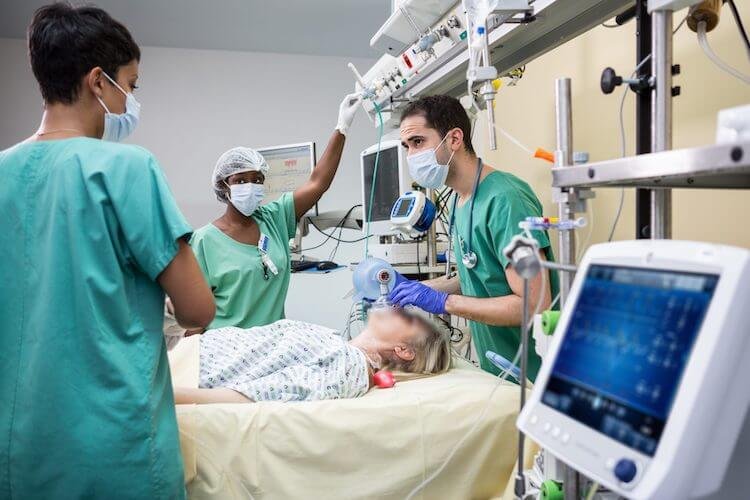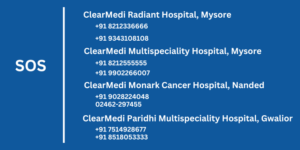Home / Departments / Intensive Care Unit

ClearMedi’s intensive care units are ultra-modern and deliver 24-hour service to critically ill patients. ClearMedi ensures that all its self-managed and partner hospitals have fully-functional intensive care units for the benefit of really ill patients. These units are equipped with the necessary equipment to provide a comprehensive range of medical care. For instance, patients suffering from cardiac arrest and multiple organ failure are admitted here. State-of-the-art infrastructure and advanced monitoring equipment ensure round-the-clock critical care is given.
ClearMedi ensures the presence of a response team at all its hospitals and medical centres. Our teams are well-trained and work swiftly to give timely and appropriate medical care to the patients. This team has qualified specialists and experienced nurses so that all formats of care can be provided to the patients. The team comprises of physicians, respiratory therapists. specialists and care managers.
The first few hours after a critical surgery are crucial. The patients require a clean and sterilised environment after the surgery to protect them from any complications and to pave the path for a speedy recovery. ClearMedi follows a strict norm of protocols that are of international standards. The ICUs follow stringent safety norms and standards for infection control. Apart from this, there is a standard procedure for clinical handover that ensure the safety of the patients.
Critical care or intensive care is a special hospital ward that is dedicated to critically ill patients. These wards are equipped with ultra-modern equipment and technology to treat and monitor such patients. These wards are staffed with well-trained specialists and nurses who ensure round-the-clock medical care to the patients.
A patient of any age who is critically ill may require critical care. Constant monitoring and timely treatment given in critical care can improve the chances of survival of such patients. Here are some conditions in which a patient may require critical care.
- After a highly invasive surgery
- If the results after surgery are not very promising
- If the patient is suffering from serious infections
- People who have been seriously injured in an accident
- If the patient is having difficulty breathing and requires the support of a ventilator
- Multiple organ failure
- Symptoms of drug-resistance or blood infections
A well-qualified team of specialists and nurses look after the patients in an ICU. Since they are so critically ill, a series of monitoring equipment is connected to keep a tab on every crucial aspect of their health. Some equipment also supports their bodily functions if their body is unable to make the effort.
The branch of dental science dealing with the oral healthcare of the infants, adolescents and the children through treatment, educational and preventive services. A broad range of work comes under this service and involves treating children with dental and facial problems. They could be involved in dentoalveolar trauma or various other special needs.
- Ventilator – it is a machine that supports breathing if the patient is breathing insufficiently. It mechanically allows the oxygen to reach the lungs and also removes the carbon dioxide. For this purpose, a tube is inserted either into the nose, mouth or through a small cut in the throat.
- Monitoring equipment – these machines are used to measure crucial bodily functions, such as the heart rate, blood pressure and the level of oxygen in the blood
- IV lines and pumps – these are the tubes that are inserted into a vein (intravenously) of the patients. It is done to provide fluids, nutrition and medication for a speedy recovery
- Feeding tubes – These tubes are used if the patient is unable to eat normally. The tubes can be placed either in the nose or through a small cut made in the tummy. These tubes ensure that the patient gets enough nutrition for his overall recovery.
- Drains and catheters – these are thin tubes that can be inserted to any part of the body. They help in removing unwanted fluid that gets accumulated within the body.
A patient may be transferred to another hospital ward if he shows signs of improvement. However, the patient may experience weakness, stiffness, loss of appetite and sleep problems. It is advised to consult your doctor if these problems linger for a long time.
ClearMedi is generally flexible with its visiting hours. However, there are certain times when visiting is not allowed to reduce infections. You may not be allowed to bring certain items along. The ICU staff will help you with all your queries and direct you for proper conduct.

